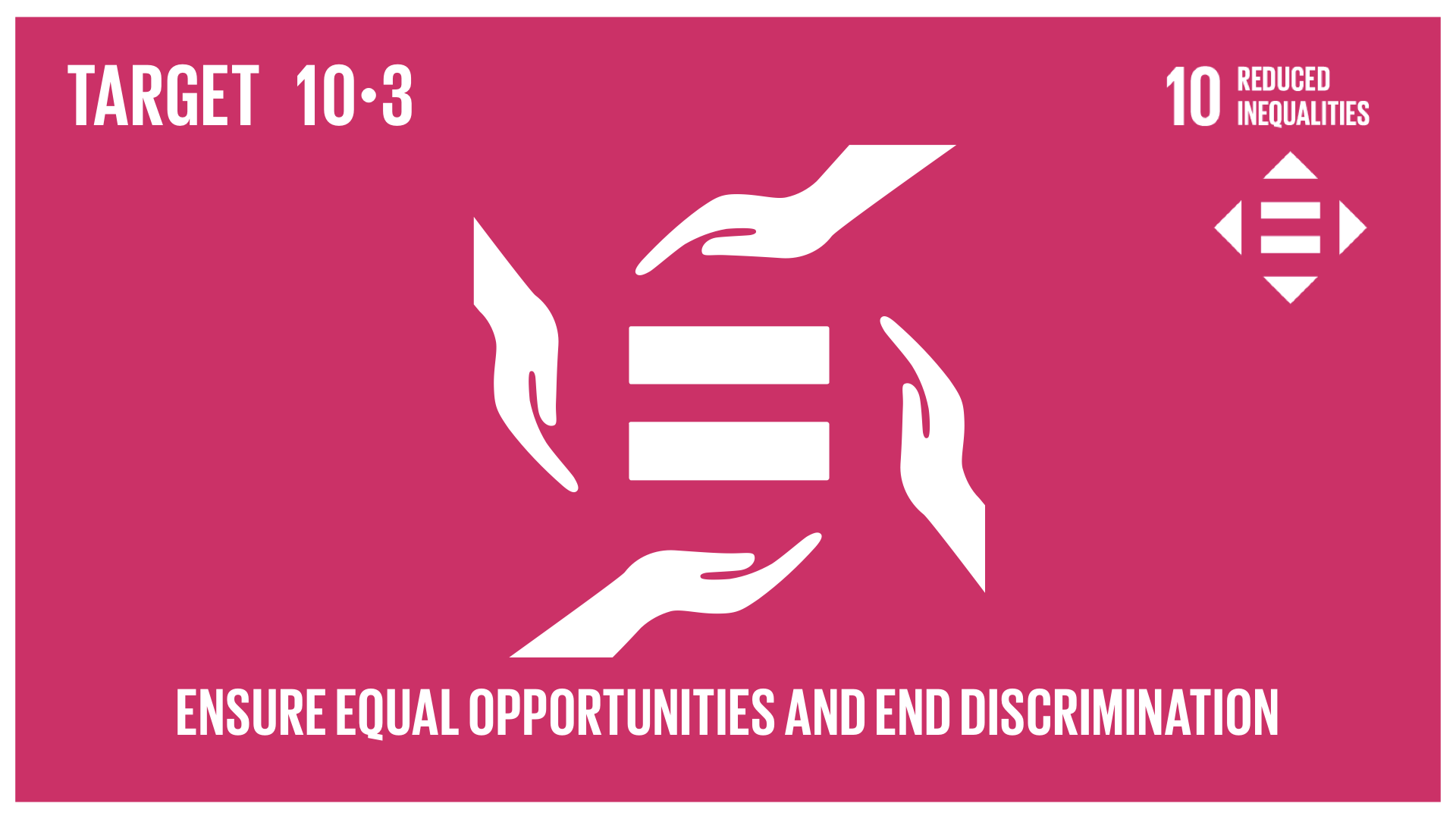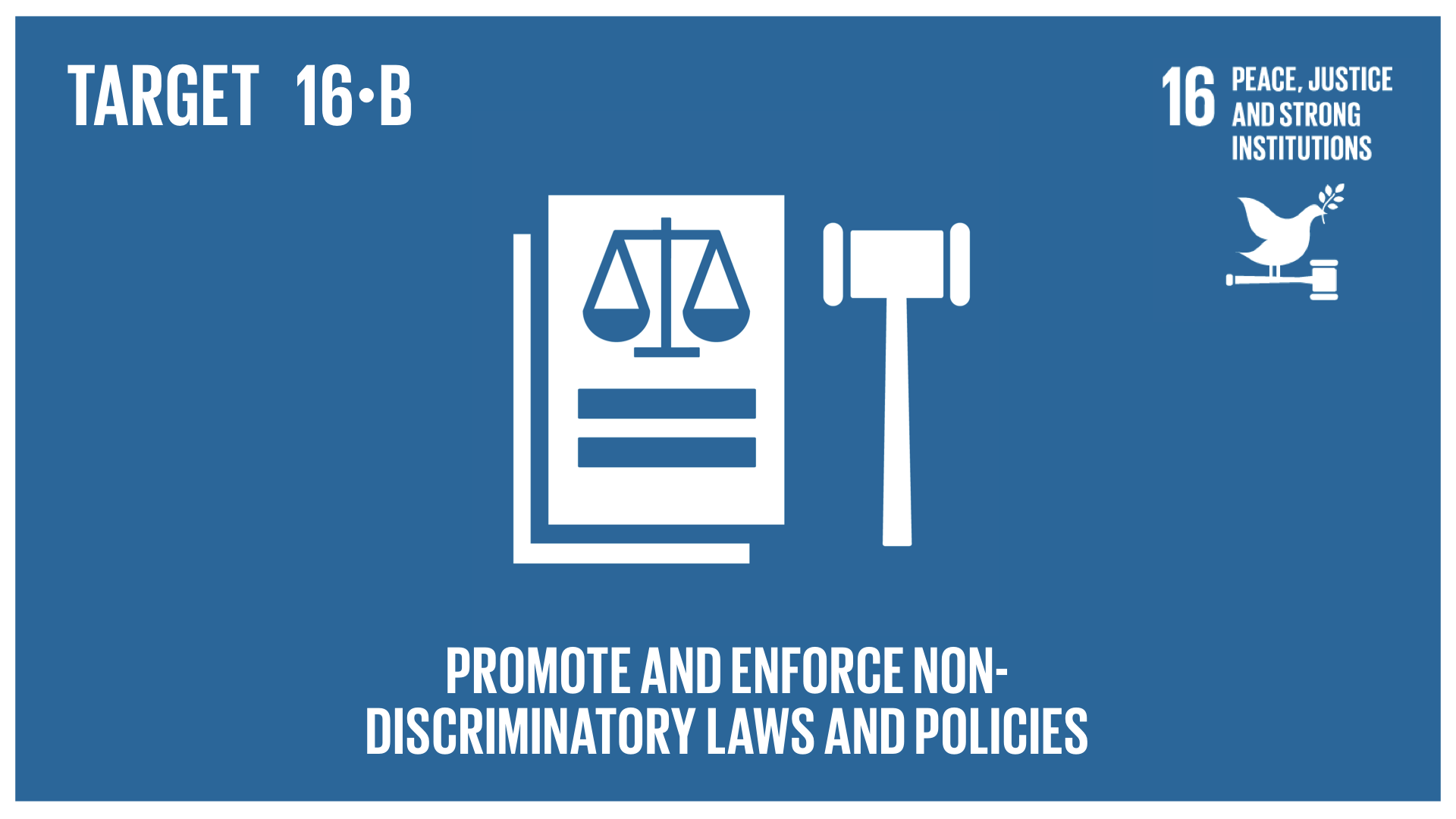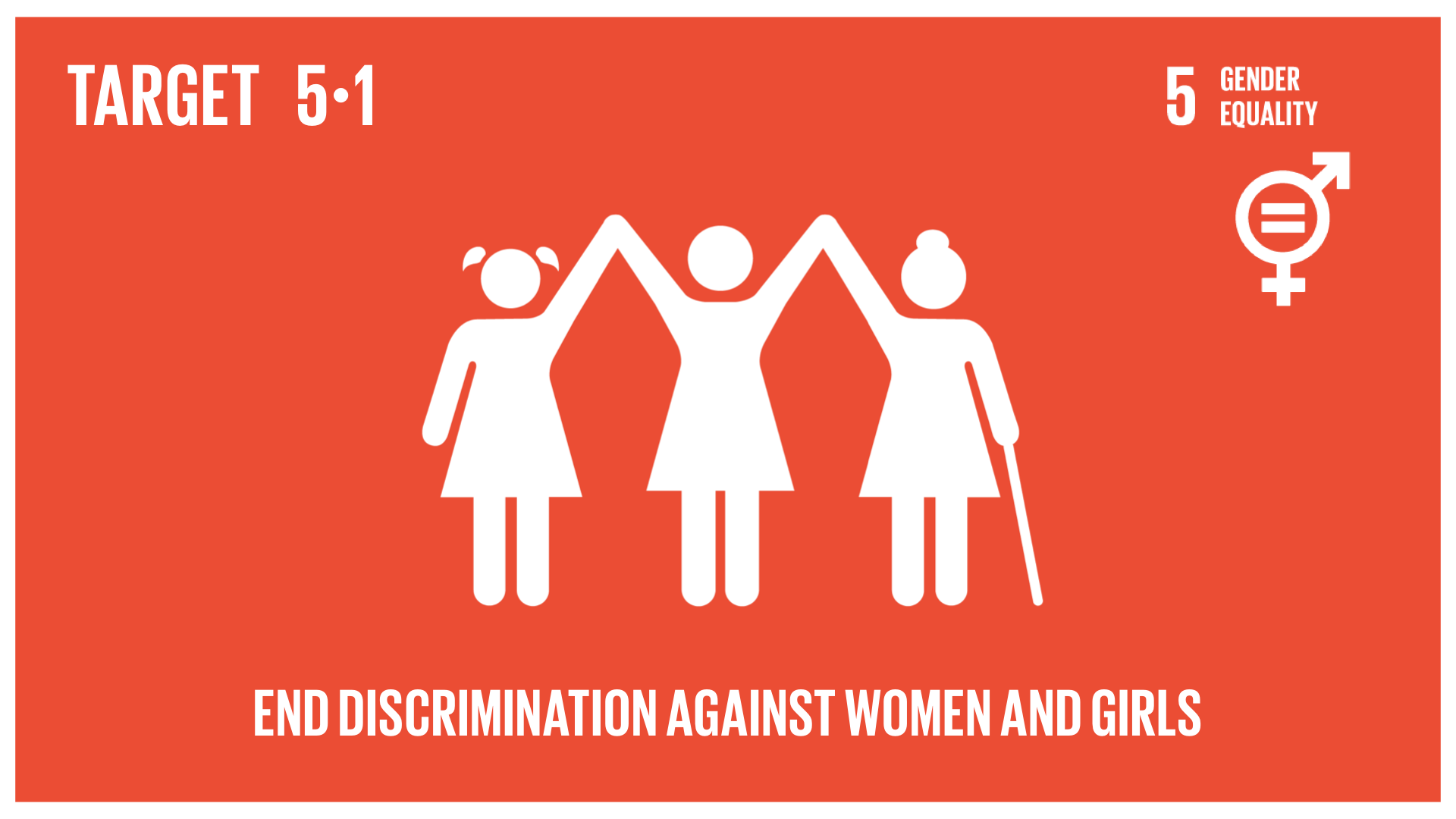Non-discrimination
The principle of non-discrimination is enshrined in the 2030 Agenda and, also in many international human rights treaties, including the Declaration on Human Rights Defenders.
Human rights and the SDGs are universal, meaning everyone is entitled to and has the right to claim them. In defending their rights, no one shall be treated differently due to their race, ethnicity, colour, sex, language, religion, opinion, origin, property, birth, disability, or any other status.
Yet, some groups of people are still subjected to discriminatory treatment and face specific vulnerabilities when acting as human rights defenders. Women Human Rights Defenders (WHRDs), for example, are at the forefront of social movements for gender equality. They demand structural changes in society, equality of rights, and freedom from pre-defined gender-based roles. When performing their work, WHRDs can be subjected to double layers of risks and discrimination related to who they are (women) and what they do (defend human rights).
The same is true for other rights defenders such as indigenous peoples’ groups, LGBTI activists, Black lives movements, among many others. Discrimination can impact how these groups are treated by the police and the justice system, how they are perceived in the public discourse, and how they are portrayed in the media. Achieving SDG targets aimed at ending discrimination, notably 5.1, 10.3 and 16.b, is therefore critical to enabling a safe environment for WHRDs and all groups of human rights defenders.



